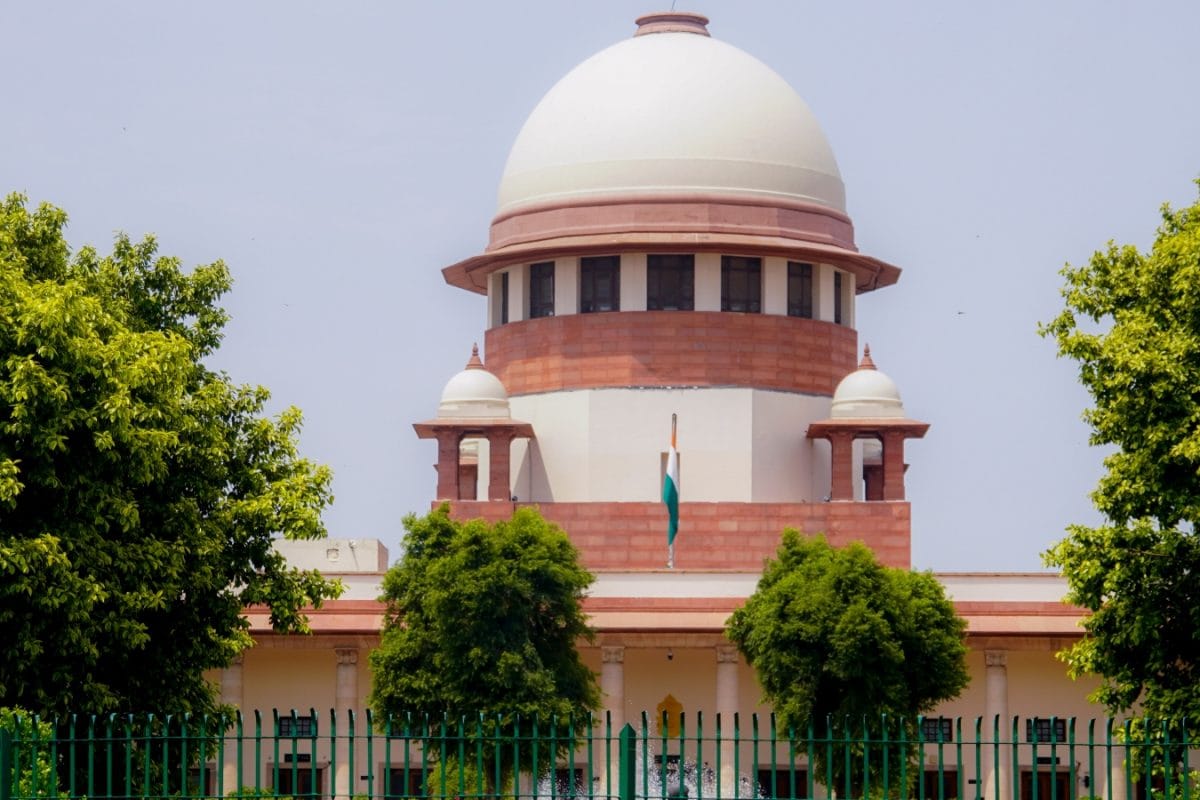Aadhaar's Limitations Highlighted, But Can Establish Identity, Says Supreme Court
National NationalPosted by AI on 2025-09-08 10:59:20 | Last Updated by AI on 2025-09-09 03:40:32
Share: Facebook | Twitter | Whatsapp | Linkedin Visits: 0

The recent Supreme Court verdict on Aadhaar has shed light on its limitations, clarifying that it is not a proof of citizenship and hence, not a condition for receiving welfare benefits. Nonetheless, the court emphasized that Aadhaar can establish an individual's identity. This decision has ramifications for voting rights and the upcoming general election.
The Supreme Court's statement on Aadhaar emphasizes that the biometric identification system cannot be used as a proof of citizenship. This is a significant clarification, given the ongoing debate about the role of Aadhaar in voting rights. The court's decision reflects the fundamental distinction between citizenship and identity, highlighting that individuals must meet the criteria for citizenship to vote, and Aadhaar is not a substitute for citizenship.
Despite its limitations, the Supreme Court acknowledged Aadhaar's ability to establish identity. This recognition is crucial as identity theft and fraud pose significant challenges in the existing electoral system. Aadhaar can help mitigate these issues and authenticate individuals' identity claims.
The latest verdict has ramifications for the upcoming general election. It underscores the importance of ensuring that every individual who wants to vote is duly registered and verified, regardless of whether they have an Aadhaar card. It emphasizes the need for a robust election administration that facilitates seamless and inclusive voting.
In essence, the Supreme Court's statement on Aadhaar clarifies its limitations and underscores its role in establishing identity. This decision has implications for voting rights and the general election, emphasizing the importance of verifying identity while ensuring inclusive and accessible voting processes for all citizens.
Search
Categories
- Sports
- Business
- National
- Investments
- History
- Politics
- International
- Science & Technology
- Social Issues
- Disaster Management
- Current Affairs
- Events & Jobs
- మన పార్టీ
- మన నాయకత్వం
- మన విజయాలు
- డౌన్లోడ్స్
- మీడియా వనరులు
- కార్యకర్తలు
- రాజకీయం
- బిజినెస్
- సంపాదకీయం
- నవ్య
- చిత్ర జ్యోతి
- క్రీడలు
- జాతీయం
- తెలంగాణ
- తాజా వార్తలు
- Fast Check
- South
- Gallery
- Sunday Chronicle
- Hyderabad Chronicle
- Technology & Innovation
- Innovations and Initiatives
- బిజినెస్
- North East Skill Center News
- Government Schemes
- Entrepreneurship Support
- Employment Opportunities
- Skill Training Programs
- Education
- Startup Business
- Startup News
- Awards
- Community Services
- Fundraising Events
- Volunteer Services
- Health Initiatives
- సినిమా
- లైఫ్ స్టైల్
- క్రైం
- ట్రెండింగ్
- జాబ్స్
- అంతర్జాతీయo
- Market Buzz
- Awards
- Partners
- Products
- Press Releases
- News
- Departments
- Initiatives
- Resources
- Telangana IT Parks
- Press Releases
- News
- Airport News
- Sports
- Business
- Newtons Laws of Motion
- Karbonn in Business
- Investments in Karbonn
- Company quarterly sales
- Markets
- Auto News
- Industry
- Money
- Advertisements
- Stock target
- Company Updates
- Stock Market
- Company Sales
- Staffing and HR
- Constituency Assembly
- General News
- Srikalahasti Temple
- Bojjala Sudhir Reddy
- Products
- Industries
- Services & Trainings
- Tools & Resources
- Technology Integration
- Drug Seizures & Arrests
- Telangana Narcotics
- Law & Enforcement
- Rehabilitation
- Nationwide Drug Policing
- Nigeria Seizures
- Global Operations
- Drug Awareness
- Drug Enforcement Tech
- NCB Drug Seizures
- Judicial Crackdown
- India's Surveillance Tools
- Cross-Border Links
- Women Safety
- Cyber Crimes
- Drug Abuse
- Traffic & Road Safety
- Community Connect
- Public Safety Alerts
- Citizen Assistance
- Nellore City News
- Politics & Administration
- Events & Festivals
- Agriculture & Rural
- Business & Economy
- Health & Wellness
Recent News
- House Releases Copies of Epstein's Personal Items, Including Address Books
- Stock Market Highlights: IT, Auto, Coal, Infra, And Rail Stocks In Focus
- ITR Filing Alert: The Tax Treatment Of Sovereign Gold Bond Redemptions
- Mohammad Nabi's Milestone Chase in Asia Cup Opener
- Luis Suarez Banned For Spitting, But Inter Miami Aren't Done Fighting
- Nottingham Forest Sack Head Coach Nuno Espirito Santo
- Sad incident
- Questioning Can Integrity